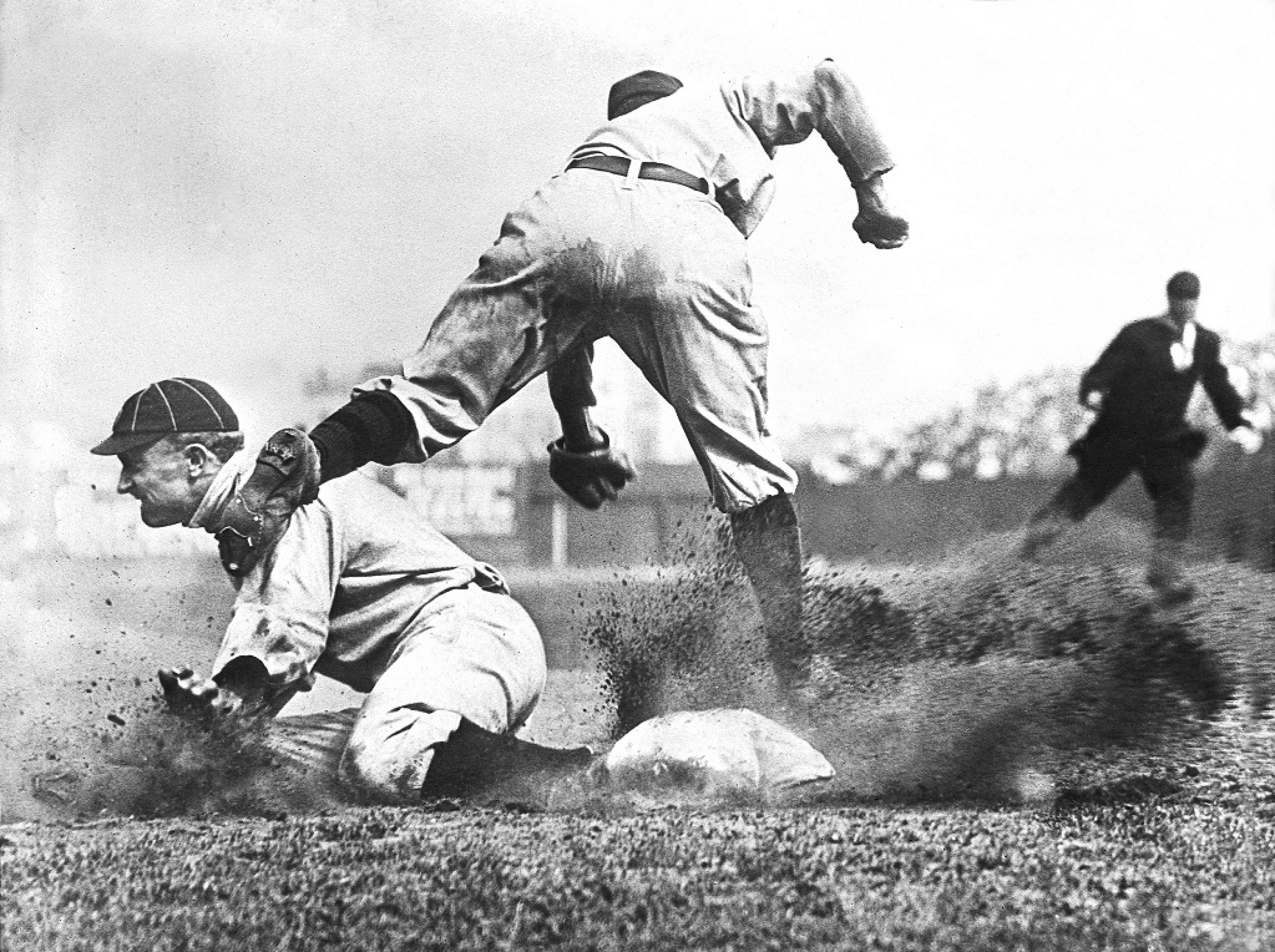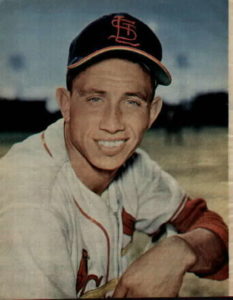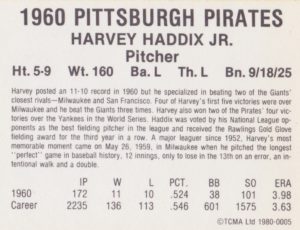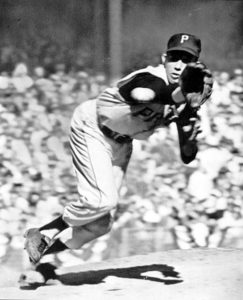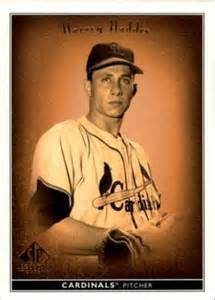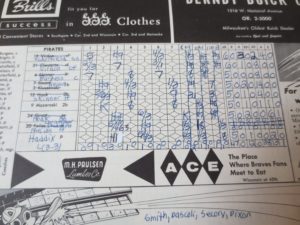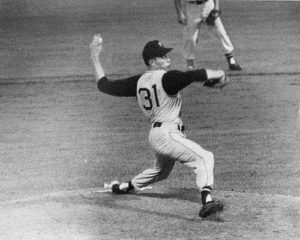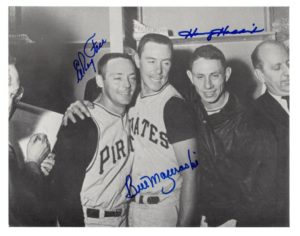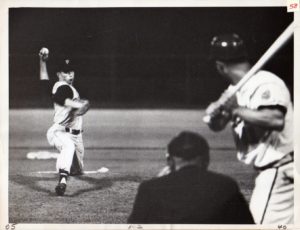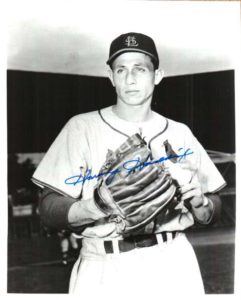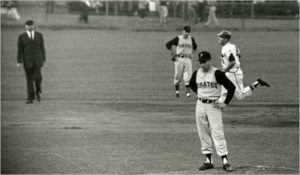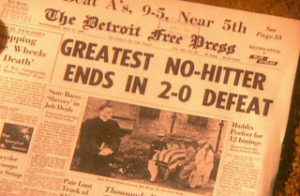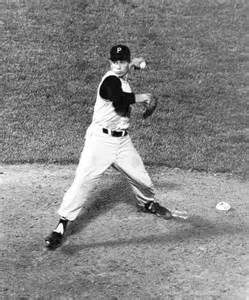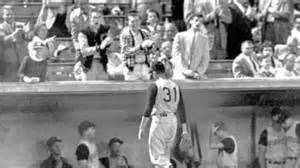Baseball History Comes Alive Now Ranked #2 by Feedspot Among All Internet Baseball History Websites and Blogs!
Guest Submissions from Our Readers Always Welcome!
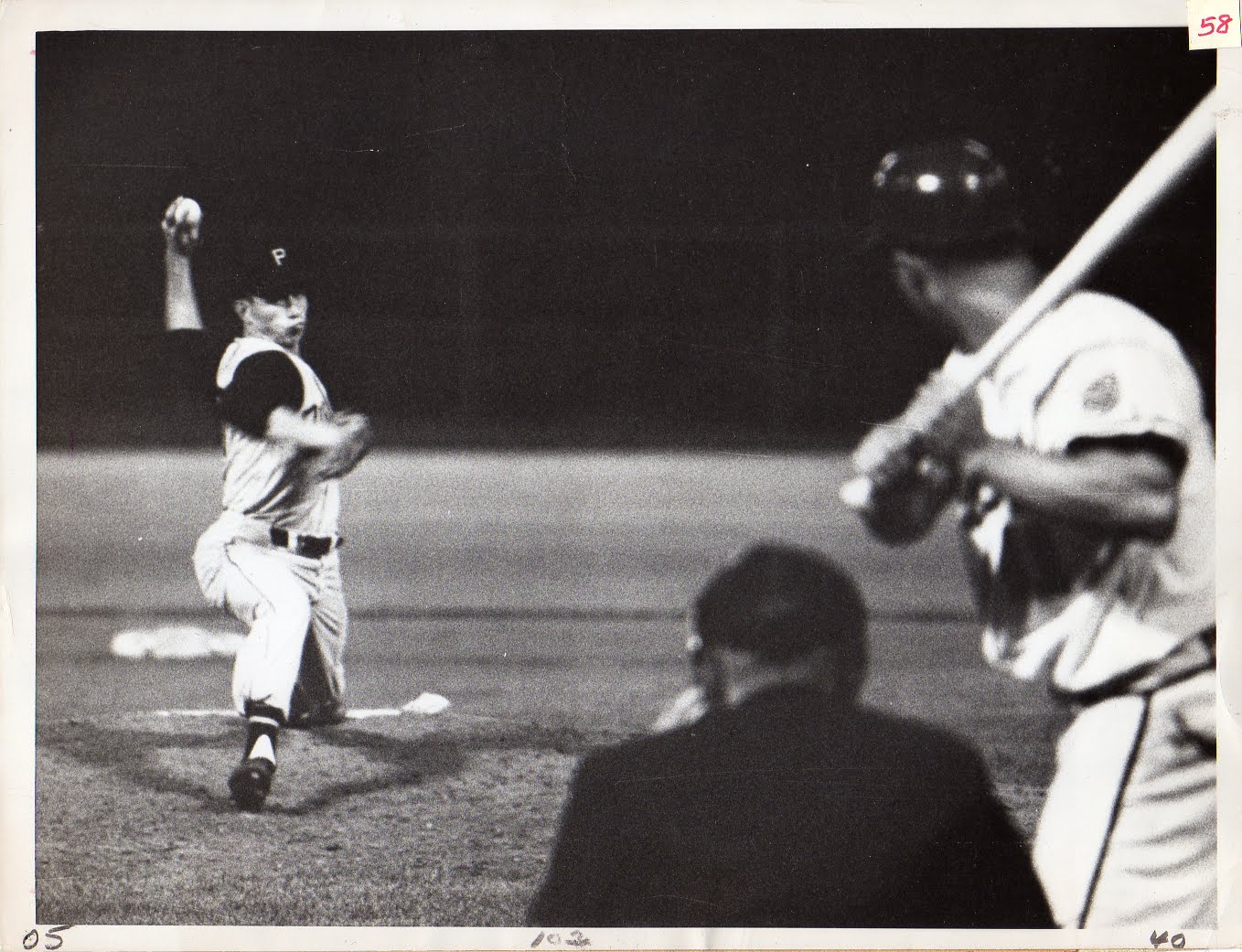
Subscribe to my blog for automatic updates and as a Bonus get instant access to my two Free Special Reports: “Memorable World Series Moments,” and “Gary’s Handy Dandy World Series Reference Guide!”
Harvey Haddix Photo Gallery
Click on any image below to start Photo Gallery:
Harvey Haddix Near-Perfect Game: One for the Record Books!
“Not a day goes by that somebody doesn’t ask me about that game. I think I got more notoriety from it because I lost.”-Harvey Haddix, years later reflecting on his historic game
Some of us older guys remember one of baseball’s great pitching performances and a real baseball oddity: The day 57 years ago yesterday (May 26, 1959) when the Pirates’ Harvey Haddix took a perfect game into the 13th inning against the Milwaukee Braves—and actually lost the game! Haddix’s effort is considered by many to be the best pitching performance in major league history. But Instead of entering the record books with a rare perfect game, Haddix had to settle for a 12 2/3 innings one-hit complete game loss.
Haddix retired 36 consecutive batters that day essentially relying on just two pitches: his fastball and slider. The problem for Haddix and the Pirates was that the Braves’ pitcher, Lew Burdette, was also having a great day, taking a shutout into the 13th, scattering 12 singles without walking a batter. The Braves’ lineup was stacked with heavy hitters, including Eddie Mathews, Hank Aaron, Joe Adcock, Wes Covington, and Del Crandall. They had won the National League pennant in the previous two years.
Haddix was perfect through nine, but because the Pirates failed to score, he had to work overtime. With tension and excitement building on every pitch, he was flawless for 10 innings. Then 11. Then 12. He had faced a remarkable 36 batters, and 36 had been retired. Haddix was now in baseball’s version of “uncharted waters.”
Heading into the bottom of the 13th, things abruptly unraveled. The Braves leadoff man Felix Mantilla reached on an error by third baseman Don Hoak. Mantilla advanced to second on a sacrifice bunt by Eddie Mathews, Hank Aaron then received a free pass, and so there were two on with one out.
Now things took an unusual turn. Joe Adcock hit what appeared to be a home run, ending the game, 3-0. However, in the ensuing confusion, Aaron left the basepaths and was passed by Adcock for the second out and the game officially ended as a 2-0 Braves’ victory. The hit was later downgraded to a double by National League president Warren Giles. Only Mantilla’s run counted, for a final score of 1-0.
“There’s never been a game like this,” said Bill Virdon, the Pirates center fielder that night.
Today, a pitcher gets credit for a quality start if he gives up no more than three runs in six innings. Put that up against a 13-inning game, featuring just two pitchers. What would you call this one?
But what about Haddix historic effort? Should he get credit for a perfect game? A no-hitter maybe? As it turns out, neither. In 1991, Major League Baseball redefined the definition of a no-hitter to “a game in which a pitcher or pitchers complete a game of nine innings or more without allowing a hit.” The rule had the effect of proclaiming that Adcock’s drive ended Haddix’s no-hit bid, regardless of the score or the game’s ultimate outcome. Despite his having thrown more perfect innings than anyone in a single game in all of baseball history, Haddix’s game was taken off the list of no-hitters.
Harvey Haddix played 14 years in the major leagues (1953-65) for the Cardinals (1952–56), Phillies (1956–57), Reds (1958), Pirates (1959–63) and Orioles (1964–65). Over his career, he went 136-113 with a 3.63 ERA, 1,575 strikeouts, 99 complete games, 21 shutouts. His best season was 1953 while with the Cardinals gong 20-9 with 163 strikeouts, 3.06 ERA, 19 complete games and six shutouts. He was a three-time All-Star, a three-time Gold Glove winner, and holds the major league record for most consecutive batters retired in one game (36). He was one of the stars of the 1960 World Series, winning Game Five as a starter, and was the winning pitcher in relief in Game Seven which ended on Bill Mazeroski’s historic walk-off homerun.
Harvey Haddix died from emphysema in 1994 at the age of 68
-Gary Livacari
Photo Credits: All from public domain Google search
Information: Excerpts edited from the Harvey Haddix Wikipedia page: https://en.wikipedia.org/wiki/Harvey_Haddix. And from article in Pittsburgh Gazzette on May 24, 2009 by Robert Dvorchak: http://www.post-gazette.com/sports/pirates/2009/05/24/In-1959-Harvey-Haddix-pitched-perhaps-the-best-game-ever-and-lost/stories/200905240102
Subscribe to my blog for automatic updates and Free Bonus Reports: “Memorable World Series Moments” and “Gary’s Handy Dandy World Series Reference Guide.”
